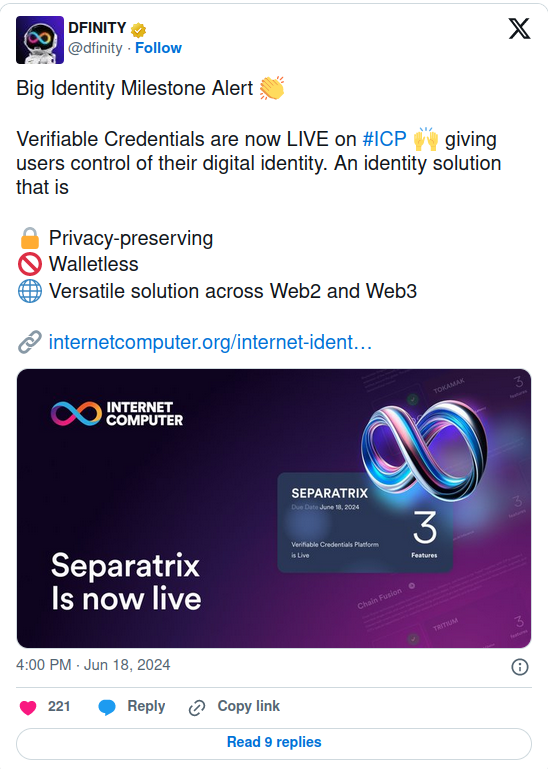Internet Computer Protocol Launches Privacy-Focused Verified Credentials to Securely Share Personal Data in Web3
Verified Credentials (VCs) allow users to share specific information, such as their age or the fact that they have completed a KYC, without needing to reveal additional data such as their name or date of birth
The Internet Computer Protocol (ICP) has taken a significant step towards improving privacy and control of personal data in the web3 space with the launch of its Verified Credentials (VCs).
These credentials are cryptographically secure digital representations of personal data such as qualifications and achievements, designed to be shared securely and privately.
This advancement is part of its Internet Identity platform, a decentralized identity solution that operates end-to-end on the Internet Computer Protocol blockchain.
Verified Credentials (VCs) allow users to share specific information, such as their age or the fact that they have completed a KYC, without needing to reveal additional data such as their name or date of birth.
This functionality is made possible through integration with Internet Identity, which uses WebAuthn technology to authenticate via secure hardware and biometric keys, eliminating the need for passwords or seed phrases.
One of the initial applications of VCs is the Proof of Unique Humanity (PoUH), implemented by the decentralized messaging application OpenChat.
PoUH ensures that each human user can only have one account, using biometric data to prevent the creation of multiple accounts and the proliferation of bots.
This functionality is crucial to combating illicit behavior on traditional and web3 social media platforms.
The Internet Identity system ensures that each interaction with a dapp (decentralized application) is performed under a unique identity derived for that dapp, protecting the user from unwanted tracking and ensuring their privacy.
Additionally, developers can easily integrate these solutions into their applications thanks to the APIs and SDKs provided by Internet Computer Protocol, making it easy to create experiences that respect user privacy without the need to store sensitive personal information.






